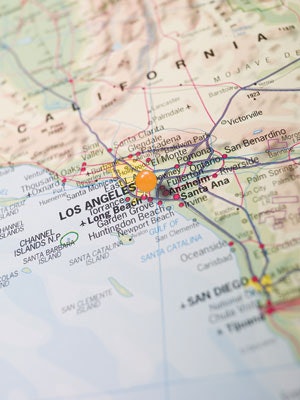
The fortunes of the industry may rise and fall, but one of the great constants has been the large and enthusiastic attendance of the early spring service confabulation in Long Beach, Calif., known as the Western Show.
The convention has maintained its strength through good times and recessions such as this one by virtue of a simple formula — teach service personnel valuable skills, give them ample face time with manufacturers of key service products, and in general, show them a good time.
That recipe has held up for 34 years, says Peter Haverlation, owner of Peter's Pool Service, North Hills, Calif., and director of registration and communication for the Western Show.
"The real reason the show got started long ago was education, and that's still the big draw today. People have been asking for even more education, so we've added eight more classes to our seminar schedule, so as large as it has been, it's even bigger now."
Education has been a passion for show organizers all along, Haverlation notes; these are people who see training as the salvation of the industry that represents their life's work.
"I've been a volunteer for this show for 33 out of the 34 years (I missed the first year), and none of us gets paid for doing this, so you have to either really love what you're doing or really care about the industry. We really are trying to make people better at this work. If they can get better, the industry gets better, and then people aren't afraid to put a pool or a spa in their backyard.
"Because when those things break — and everything breaks sooner or later — we need somebody competently trained to repair it. So when their neighbor says to them, 'I'm thinking about getting a pool put in,' you don't have the pool owner saying, 'I wouldn't make that mistake again. Nobody knows how to fix this thing.'
"Way back when the show started, that was their thinking, and it still is today."
Face Time
The education the show provides goes well beyond the classroom. Due to the show's reputation as a service event, manufacturers are drawn to Long Beach not only to teach customers about their products, but to receive informal field test lab reports from the people who use these products every day.
"From the feedback we get," Haverlation says, "we've learned that the show is a chance for service people to talk to the manufacturers of the products they're using, and when they get that one-on-one at the booth, that really helps. But the education goes both ways — we've always had manufacturers that wanted to come because they find out about their products from people who are using them, and they'll get honest feedback — 'Hey, you may want to think about changing this, or that's really useless as a feature.'"
We end up doing a lot of field-testing for them in the service industry, which is helpful to a manufacturer because it's impossible for them to test their products in all situations."
With an expanded classroom schedule starting earlier than ever before, a still-strong service sector looks to make this year's Western Show another worthwhile event. "We're getting a lot of calls from exhibitors we've never had before," Haverlation says, "so we're very excited about this year's show."
Western Fun
The Western Pool & Spa Show has a reputation as one of the "fun shows" in the pool and spa convention lineup. One tradition which adds to the excitement is the annual truck drawing. This year the show will be giving away its 24th pickup.
Another entertaining and very popular feature of the show is the putting contest, which takes place right on the show floor. After paying a nominal entrance fee, attendees compete for the lowest score. Half the proceeds go to the winner, and the other half are used to help fund SPEC.
"We try to raise money for them because they're looking out for us," Haverlation says. "Especially in hard times, it's important to keep supporting SPEC, so they can do the preemptive things they do. They are like a fire department in the way they help protect our industry. Unfortunately, it's hard to see the need for a fire department before there's a fire. But it's better to take the precaution ahead of time to keep a fire department running."
—S.W.
Comments or thoughts on this article? Please e-mail [email protected].












































